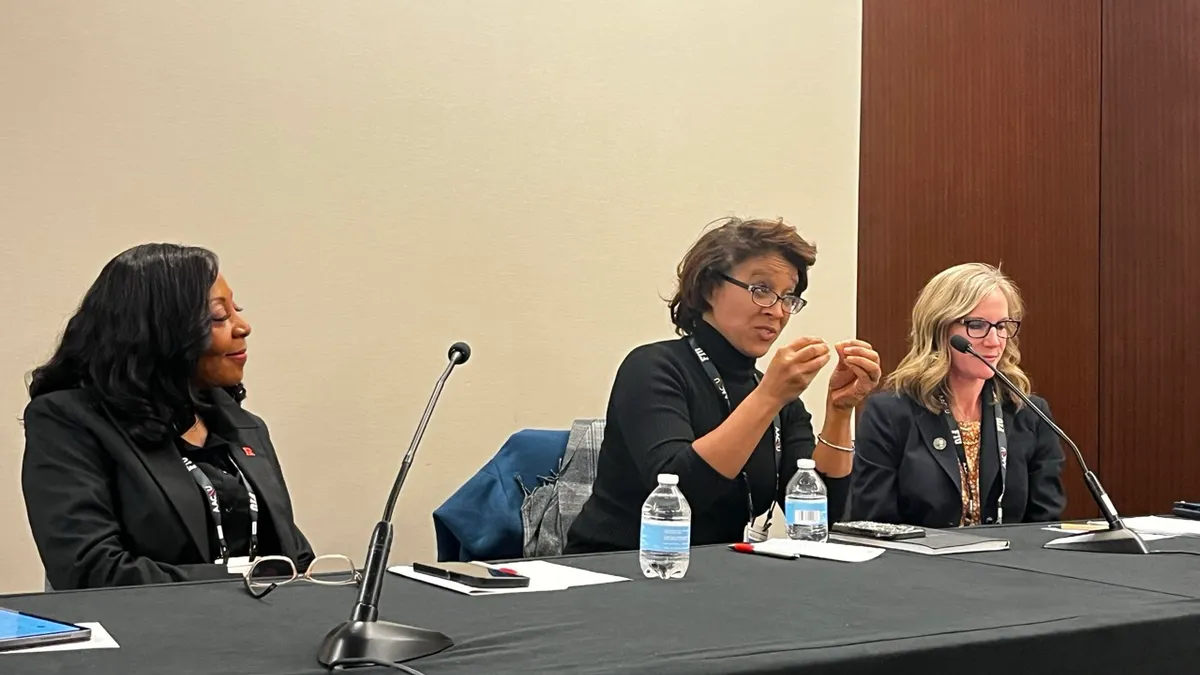Dive Brief:
- The so-called "Pay It Forward" model for addressing the college loan debt issue is riddled with problems and potentially serious, long-term consequences, according to a policy brief from the American Association of State Colleges and Universities.
- Pay It Forward, or PIF, would eliminate up-front tuition and fee payments at public colleges and universities. Instead, students would agree to pay a fixed portion of their earnings for an extended period after graduation, when the payments would fund other students in college.
- Among the problems with PIF, according to the AASCU: Most students would end up paying more, considerable uncertainty would be created for colleges and universities trying to line up revenues with expenditures, and the startup costs would be enormous.
Dive Insight:
The policy report says PIF advocates point to three issues that the model addresses: financial barriers to college entry and completion; unmanageable post-college debt; and restrictions on career choices for graduates because the low pay for some jobs isn’t enough to pay down their loan principals. But each of the issues is either poorly addressed by PIF or already addressed by existing state and federal programs. Also, PIF programs could lead to higher college costs, inefficiencies in the education financing system, long-term administrative burdens and long-term economic damage, according to the AASCU.













